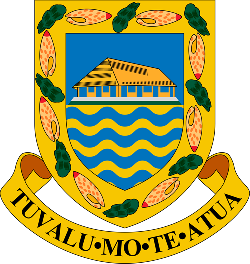Filter by topics:
Filter by focus area:
Filter by publication year:
Results
The Government of Tuvalu developed its Intended Nationally Determined Contribution (INDC)
and submitted it to the United Nations Framework Convention on Climate Change (UNFCCC)
in 2015 and ratified the Paris Agreement on 22 April 2016. When the Paris Agreement came
into force on 04 November 2016, Tuvalu’s INDC submitted in 2015 automatically became
Tuvalu’s First NDC.
Tuvalu faces several development challenges as one of Small Island Developing States (SIDS). The National Strategy for Sustainable Development (2016-2020) (TK III) addresses these challenges and provides important guidelines on Tuvalu’s sustainable development.
"Te Kaniva" was the first Tuvalu climate change policy presented by the former Hon. Apisai Ielemia in 2012, refering to a "traditional travelling method of using stars and daily weather patterns by our ancestors when they go on a long journey on a fishing expedition" meaning that TCCP will help the nation chart a way through the many impacts of climate change.
The Local Climate Adaptive Living (LoCAL) Facility of the UN Capital Development (UNCDF) was designed to promote climate change-resilient communitoes and local economies by establishing a stardard, internationally recognized country-based mechanism to channel climate finance to local government authorities in Least Developing Countries (LCDs) including Tuvalu. Below are the LoCAL-Environmental and Social Safeguard (ESS) documents that has been published to the public, mainly affected beneficiaries. If you wish to know more about the project ESS visit the following sites
This National Adaptation Plan (NAP) Framework has been developed to provide strategic
guidance to Tuvalu’s NAP process. The NAP Framework draws on a culmination of
assessments, including the findings of the integrated vulnerability assessment, detailed
desk review, and stocktake of legislation, policies and plans relevant to climate change
adaptation.
